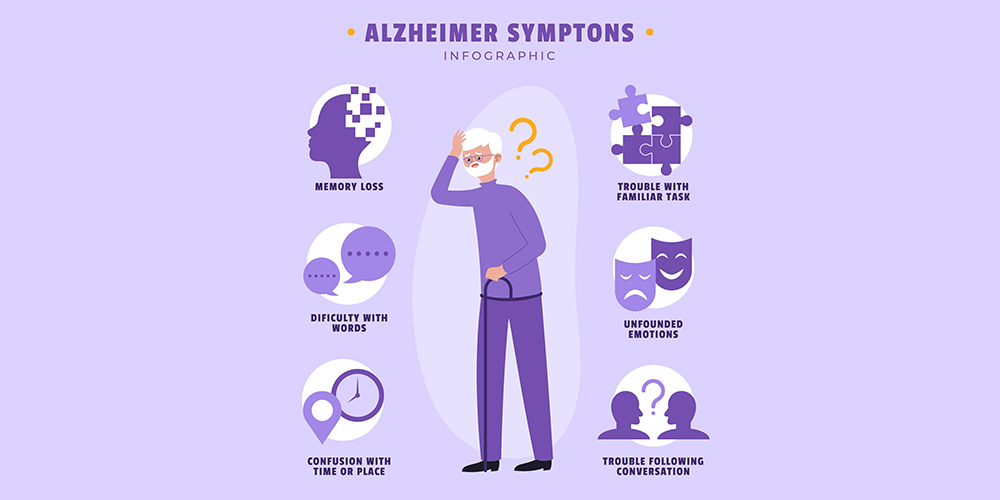Last Updated on September 22, 2025
A gardener named Aisha cares for a vibrant rose bush, tending to it each morning. Over time, the rose bush begins forgetting which buds to open and which leaves to nourish; some blossoms fade before they’ve even bloomed. Concerned, Aisha consults a plant doctor who explains that the bush’s roots are deteriorating, its signals confused. This metaphor mirrors what many caregivers see in human lives when Alzheimer’s disease takes hold. On this day, we pause to recognize that behind every case is a human someone like Aisha’s rose, whose identity, memory, and essence deserve protection, respect, and support.
On September 21, communities munities around the globe unite to shine a light on Alzheimer’s disease: its challenges, research advances, and the people living with it. September 21 World Alzheimer’s Day 2025 becomes not just a calendar date but a call to action. As the gardener tends the rose, we tend those affected: by understanding causes, identifying symptoms early, and exploring treatments. This blog explores what Alzheimer’s is, its prevalence, what can be done, and how to celebrate this day in ways that are meaningful. Because on September 21, awareness saves dignity; on World Alzheimer’s Day 2025, support can translate into hope.
What Is Alzheimer’s Disease?
Alzheimer’s disease is a progressive neurodegenerative disorder that primarily affects memory, thinking, and behavior. Over the years, it impairs daily functioning. There is no cure yet, but understanding causes, symptoms, and treatments helps individuals, families, and health systems to respond effectively.
Prevalence of Alzheimer’s
Globally, Alzheimer’s disease affects tens of millions. It is estimated that over 50 million people live with dementia, Alzheimer’s being the most generic form, accounting for 60–70% of these cases. Prevalence rises sharply with age: one in ten people over age 65, and half over age 85 may show Alzheimer’s symptoms. Geographic, genetic, and socioeconomic factors influence prevalence; low- and middle-income countries face rising numbers without matching resources. Policymakers are urged to recognize that dementia care needs are increasing across populations with longer life expectancies. Awareness and funding efforts must match the growing reality.
Causes, Symptoms, and Treatments

Here is a table summarizing causes, symptoms, and treatments:
| Category | Vaginal Yeast Infection |
|---|---|
| Causes |
|
| Symptoms |
|
| Treatments/Interventions |
|
Clinical Trials & Research
An essential frontier in addressing Alzheimer’s disease involves ongoing clinical trials. Scientists are testing therapies aimed at reducing amyloid plaques and tau tangles, investigating immunotherapies, gene therapies, and repurposed drugs. For instance:
- A global Phase III trial is evaluating a monoclonal antibody that targets amyloid buildup in early Alzheimer’s.
- Another trial is exploring neuroinflammation modulators to slow progression in mild cognitive impairment.
- Researchers trialing lifestyle + precision medicine combos: combining diet, exercise, and sleep hygiene in people at genetic risk.
On this day, results from these trials are anticipated to guide next-generation treatments. Participation in trials is often encouraged. Patients, caregivers, and clinicians can learn about eligibility and locations through Alzheimer’s associations and research centers.
Also read: World Brain Day 2025: A Global Call for Brain Health for All Ages
How to Celebrate and Observe
On September 21 World Alzheimer’s Day 2025 individuals, organizations, and communities can act. Here are How to celebrate world Alzheimer’s day in meaningful ways:
- Learn and share: Join webinars, listen to stories of those affected; use social media to share facts.
- Wear a symbol: such as a purple ribbon; organize local walks or lights up in purple at landmarks.
- Volunteer or donate: to Alzheimer’s research foundations or local care centers.
- Support caregivers: host support groups or provide respite, cook a meal, offer help.
- Advocate for policy change: engage with lawmakers, push for funding, caregiver protections.
By observing September 21 world Alzheimer’s day with these acts, you contribute to a larger movement.
Also read: Alzheimer’s and Brain Awareness Month 2025: Facts, and Support
Significance of September 21 world Alzheimer’s day
This day has become a global identifier, a date when Alzheimer’s awareness, research, and compassion are spotlighted. In many countries, events, media campaigns, and community education coincide on this day.
When we speak of September 21 World Alzheimer’s Day 2025, we invoke an opportunity: this year’s theme, latest research, and fresh stories. September 21 World Alzheimer’s Day 2025 is not just symbolic it’s the moment to act. For both individuals and institutions, this date offers urgency and hope: hope for better diagnostics, treatments, and support, urgency to mobilize resources and public awareness.
Awareness & Support Matter
Awareness reduces stigma, knowledge empowers early diagnosis, and support lessens isolation and improves care. On World Alzheimer’s Day 2025, global awareness campaigns can demand better healthcare policies, support for caregivers, funding for clinical trials, and equitable access to treatments.
Also read: World Mental Health Day 2024: Mental Health in the Workplace
Call to Action: What You Can Do on September 21 World Alzheimer’s Day 2025
- Share reliable information with friends and family.
- Participate in local or virtual events connected to Alzheimer’s advocacy.
- If eligible, enroll in clinical trials or support someone who is.
- Push for health systems to integrate Alzheimer’s care and caregiver support.
Takeaway
On World Alzheimer’s Day 2025, let us tend to one another like gardeners caring for precious blossoms. By recognizing symptoms early, understanding causes, supporting treatments, and engaging in research, every one of us plays a part. Use How to celebrate this day as your guide to meaningful action on September 21 World Alzheimer’s Day, and especially on September 21 World Alzheimer’s Day 2025. Together, we can offer dignity, hope, and support to all affected.




